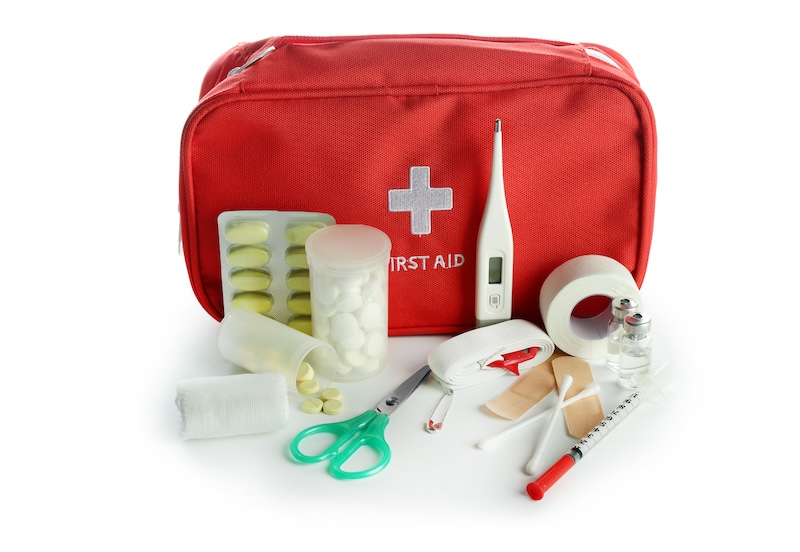Know What You Need in a Basic First Aid Kit
If you cut your finger making dinner tonight, will you know where to find a band-aid? Do you have the right size band-aids for all possible scrapes and puncture wounds? How about the antiseptic to clean the wound and protect it from infection while it heals?
You may not use your first aid kit very often, so it is important to check it periodically to be sure you have all the necessary supplies for those little at-home emergencies. A first aid kit is essential to treat minor injuries and prevent them from becoming major problems.
According to AdventHealth, there are 20 items you should keep in your first aid kit:
Hand sanitizer: It’s important to clean your hands before treating an injury, especially an open wound.
Disposable gloves: Wearing gloves helps prevent infection and protects your hands from bacteria or viruses in any body fluids you might come in contact with.
First Aid Manual: Instructions for treating various types of injuries can be helpful in an emergency. You may already know what to do, but the stress of the situation could make it hard to recall.
Emergency contact numbers: If your emergency requires professional treatment, you’ll want to have the right numbers handy.
Sterile saline solution: Good for cleaning wounds or flushing debris from an injured area.
Tweezers: Use for removing splinters or other foreign debris from a wound.
Band-Aids: Keep a supply of assorted sizes to stop bleeding and protect wounds from infection.
Gauze pads and adhesive tape: Covering large wounds will keep them clean and protected while they heal.
Antibiotic Ointment: This is necessary for preventing infection after cleaning and before bandaging a wound.
Instant cold packs: When you don’t have immediate access to ice, these cold packs allow you to apply cold immediately to an injury to prevent swelling.
Burn cream: When applied properly, burn cream or gel can reduce the burning sensation and protect a wound from infection.
Sterile eye wash: Flushing foreign substances out of the eyes can be the best way to relieve the pain and prevent potential eye damage.
Thermometer: Body temperature can provide important information to the emergency team when they arrive.
Antihistamines: Helpful in controlling allergic reactions from insect bites or stings.
Pain relievers: Aspirin or ibuprofen can be helpful to relieve the pain of various types of injuries.
Elastic bandages: To prevent the spread of infection, bags help dispose of contaminated material.
Resealable plastic bags: When you’re all done, you may need a way to dispose of contaminated.
Scissors: Cutting tape, clothing or bandages, scissors are essential.
Triangular bandage: These are handy for slings and tourniquets.
It’s important to keep a well-stocked first aid kit in your house because you never know when you will need it. Having all of your medical supplies together in one place will make it easier to deal with an emergency when it comes up.

